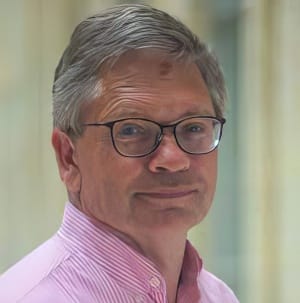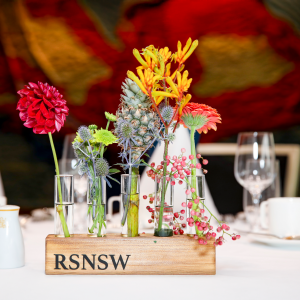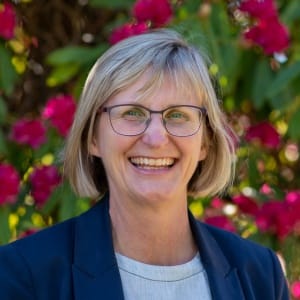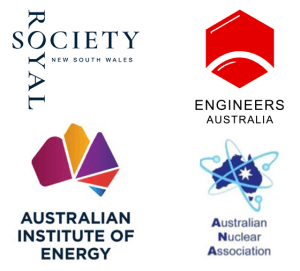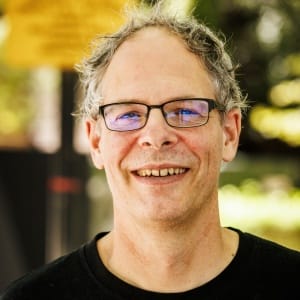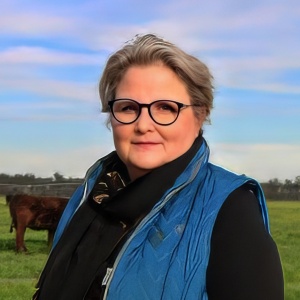Poggendorff Lecture 2017
“Applied remote sensing applications for Australian agricultural and horticultural industries”
Associate Professor Andrew Robson, University of New England
Associate Professor Andrew Robson receiving the Poggendorff Medal from His
Excellency General The Honourable David Hurley AC DSC (ret’d.), Governor of NSW
Tuesday 29 August 2017
Mitchell Theatre, Sydney Mechanics’ School of Arts, 280 Pitt St., Sydney
With increasing awareness of global food shortages and a downturn in mining exports, Australian agriculture is currently receiving unprecedented industry support and funding for the development and adoption of new technologies. At the forefront of this renaissance is agricultural remote sensing, predominantly due to the advent of drones or UAVs. Whilst the UAV technologies themselves still require much research and development, they have inadvertently increased focus on satellite-based imaging platforms, a technology that has been evolving since the 1970s. The University of New England (UNE) Agricultural Remote Sensing Team (ARST) stands at the forefront of research within this discipline, having established formal collaborations across multiple agricultural industries, and offering support to many more.
In this lecture, A/Prof Robson presented a brief theory of remote sensing with relevance to agriculture, including an overview of commercial satellites and associated costings. The presentation included a detailed discussion of applications currently being developed by ARST, in response to industry demand, ranging from the prediction of fruit size and yield at the individual tree level, the automated derivation and distribution of yield and nitrogen concentration maps to an entire industry and the generation of tools that support national biosecurity and post disaster monitoring.
Associate Professor Robson founded the ARST, a theme of the UNE Precision Agriculture Research Group (PARG), in 2016 on the back of his long-standing research career in agricultural remote sensing. He has been engaged in agricultural research since 1996, with the last 15 years developing spatial applications (remote sensing / GIS) across a number of cropping and farming systems both nationally and internationally. This research has attracted funding from a wide range of industries including peanut (ACIAR, GRDC, University of Florida), grains (GRDC), cotton (CCCCRC), sugar (SRA/SRDC, WWF/ Coca Cola), rice (RIRDC/ NSWDPI), avocados, mangoes, macadamia, banana (Horticulture Innovation Aust/ Federal DAF), vegetables (Horticulture Innovation Aust), pineapples (QDAF) and pastures (CRC-SI/ MLA). Throughout his career, A/Prof Robson has developed an extensive network of industry, research and commercial collaborators that are regularly engaged for the development and delivery of practical and adoptable outcomes.
The Poggendorff Medal
Walter Poggendorff was a biologist and plant breeder with a particular interest in the breeding of rice. In 1928, the Yanco Rice Research Station was established by the NSW Department of Agriculture with approximately 670 acres just south of Leeton on the banks of the Murrumbidgee River. A brilliant young biologist, Walter Poggendorff was transferred there as an assistant plant breeder.
Poggendorff’s early accomplishments included recognizing the need to quarantine imported rice and producing strains of rice that were able to offer growers late, mid-season, early and very early short-grain varieties. He also developed similar long-grain strains but these were not required by the market until much later. Poggendorff is recognised as one of the major figures in establishing the Australian rice industry, developing high-yield crops for Australian conditions and maintaining controls on imports to limit the introduction of serious diseases. Poggendorff’s work was not confined to rice – in the 1930s and 1940s, he worked with peaches, apricots, pears, almonds, grapes and rock melons. Later, he became Chief of the Division of Plant Industry in the NSW Department of Agriculture.
When he died in 1981, he made a bequest to the Royal Society of NSW to fund a lecture.


